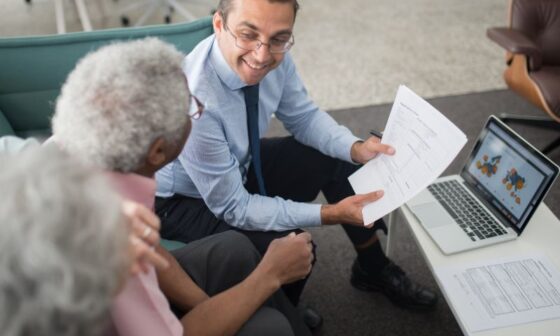Becoming a couples therapist can be a rewarding career choice for those interested in helping couples navigate the complexities of their relationships. This article will provide a comprehensive guide on how to become a couples therapist, outlining the necessary qualifications, education, specialized training, and skills required to excel in this field.
How To Become A Couples Therapist
Becoming a couples therapist involves a combination of education, training, and experience. Here’s a step-by-step guide on how to pursue this rewarding career:
1.Educational Foundation
Obtain a Bachelor’s Degree
Start by earning a bachelor’s degree in a related field such as psychology, counseling, social work, or marriage and family therapy. While not all states require a specific bachelor’s degree, it’s essential to have a solid foundation in the field.
2. Graduate Education
Earn a Master’s Degree
Pursue a master’s degree in marriage and family therapy, counseling psychology, clinical psychology, or a related field from an accredited program. This degree is a common requirement for becoming a licensed couples therapist.
Licensing and Certification:
Research Licensing Requirements
Research the licensing requirements in your state or country. Each jurisdiction has its own criteria, which typically include completing a master’s degree, accumulating supervised clinical hours, and passing a licensing exam.
Gain Clinical Experience
Accumulate the required number of supervised clinical hours under the guidance of a licensed therapist or supervisor. These hours usually range from 2,000 to 4,000 hours, depending on the jurisdiction.
What is Couples Therapy?
Couples therapy, also known as marriage or relationship therapy, is a form of psychotherapy that focuses on helping couples improve their communication, resolve conflicts, and strengthen their relationships. Couples therapists provide a safe and supportive environment where couples can explore their emotions, gain insights into their relationship dynamics, and learn effective strategies to enhance their connection.
Importance of Couples Therapy
Couples therapy plays a crucial role in promoting healthy relationships and addressing challenges that couples may face. It provides a platform for couples to express their concerns, improve their emotional intimacy, and develop strategies to navigate various issues such as communication breakdown, infidelity, or parenting conflicts. By addressing these challenges, couples therapy can help prevent relationship deterioration and promote long-term relationship satisfaction.
Qualifications and Education
To become a couples therapist, acquiring the appropriate qualifications and education is essential. Here are the key steps involved:
1. Bachelor’s Degree
Start by obtaining a bachelor’s degree in a relevant field such as psychology, counseling, or social work. This foundational education will provide you with a solid understanding of human behavior and the theoretical frameworks that underpin therapy.
2. Master’s Degree
Pursue a master’s degree in marriage and family therapy or a closely related field. This graduate-level program will equip you with the necessary theoretical knowledge and practical skills to work with couples and families. Ensure that the program is accredited by a recognized accrediting body to meet professional standards.
3. Licensing and Certification
After completing your master’s degree, you will need to obtain the appropriate licenses and certifications to practice as a couples therapist. Licensing requirements vary by jurisdiction, so it is important to research the specific requirements of the state or country in which you plan to practice. Common requirements include supervised clinical experience and passing a licensure exam.
4. Specialized Training
While a master’s degree provides a solid foundation, gaining specialized training in couples therapy is crucial to developing expertise in this field. Look for post-graduate programs, workshops, or certificate courses that focus specifically on couples therapy. These programs often provide in-depth training on evidence-based approaches, such as Emotionally Focused Therapy (EFT) or Gottman Method Couples Therapy, which have proven effectiveness in working with couples.
5. Gaining Experience
Building practical experience is vital for becoming a competent couples therapist. Consider the following steps to gain valuable experience:
6. Internship or Practicum
During your graduate program, seek out opportunities for internships or practicums that allow you to work directly with couples under the supervision of experienced therapists. These practical experiences will provide hands-on learning and help you develop your therapeutic skills.
7. Supervised Practice
After completing your degree, engage in supervised practice by working in a clinical setting or joining an established couples therapy practice. Supervision allows you to receive guidance, feedback, and support from experienced professionals as you work with clients. This period of supervised practice is crucial for honing your skills and building confidence.
Developing Therapeutic Skills
Becoming a proficient couples therapist requires the development of specific therapeutic skills. Here are some key skills to focus on:
1 Active Listening
Active listening is a fundamental skill in couples therapy. It involves attentively hearing and understanding the concerns, emotions, and perspectives of each partner. By actively listening, you can create a safe space for couples to express themselves and feel validated.
2 Communication Techniques
Effective communication techniques are essential tools in couples therapy. As a therapist, you can teach couples strategies to improve their communication patterns, such as active dialogue, assertiveness, and reflective listening. These techniques can enhance understanding and empathy between partners.
3 Conflict Resolution Strategies
Helping couples develop effective conflict resolution strategies is a vital aspect of couples therapy. This includes teaching negotiation skills, encouraging compromise, and fostering constructive problem-solving approaches. By equipping couples with these skills, you can facilitate healthier resolutions to conflicts.
Building a Client Base
Once you have the necessary qualifications and skills, it’s time to start building your client base. Consider these strategies to attract clients:
1. Establish an online presence through a professional website and social media platforms.
2. Network with other professionals, such as marriage counselors, family lawyers, or medical practitioners, who may refer clients to you.
3. Offer workshops or seminars on relationship topics to showcase your expertise and attract potential clients.
4. Utilize online directories and platforms dedicated to connecting clients with therapists.
Ethics and Professionalism
As a couples therapist, adhering to ethical standards and maintaining professionalism is paramount. Respect confidentiality, maintain appropriate boundaries, and engage in ongoing self-reflection and professional development to ensure the best possible care for your clients.
Continuing Education
To stay current in the field of couples therapy, it is important to engage in continuing education. Attend workshops, conferences, and seminars that provide opportunities for learning and staying updated on the latest research, therapeutic modalities, and interventions. Continuing education allows you to enhance your skills and provide the best possible care to your clients.
Resources for Couples Therapists
As a couples therapist, it is beneficial to have access to various resources that can support your practice. Some valuable resources include professional journals, books on couples therapy, online forums or communities for therapists, and consultation groups where you can seek guidance and support from fellow professionals.
Conclusion
Becoming a couples therapist requires dedication, education, and practical experience. By following the outlined steps and continuously honing your skills, you can embark on a fulfilling career helping couples navigate their relationship challenges and foster greater emotional well-being.
FAQs
1Q. Can I become a couples therapist with a different educational background?
A: While a background in psychology or counseling is common, individuals from various educational backgrounds can become couples therapists. However, additional education and training specific to couples therapy are typically required.
2Q. How long does it take to become a couples therapist?
A: The time required to become a couples therapist varies depending on the educational path, licensure requirements, and individual circumstances. Generally, it can take around six to eight years of education and practical experience to become a licensed couples therapist.
3Q. Are there any specific skills required to excel as a couples therapist?
A: Effective communication, empathy, active listening, and the ability to create a safe therapeutic environment are some of the key skills required to excel as a couples therapist. Additionally, having a non-judgmental attitude, cultural sensitivity, and the ability to navigate complex emotional dynamics are valuable traits in this profession.







